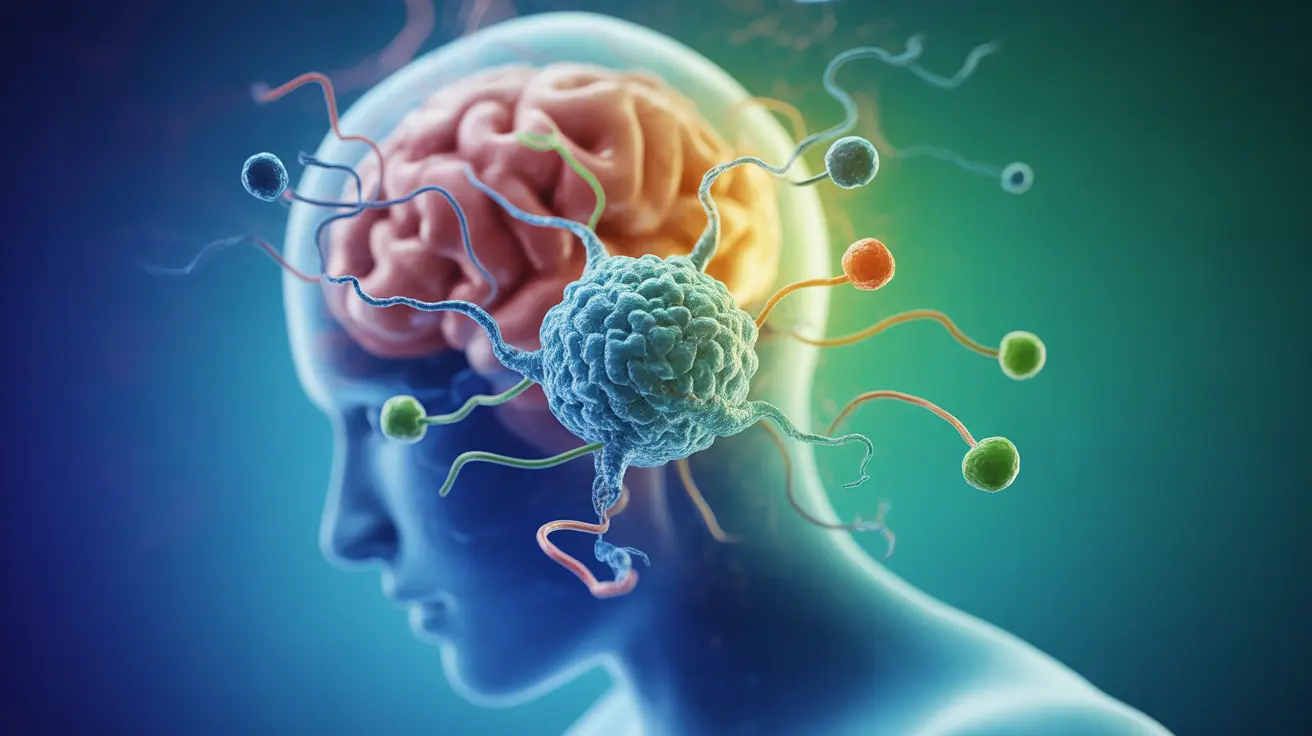The relationship between vitamin B12 and depression represents a crucial yet often overlooked aspect of mental health. This essential nutrient plays a vital role in brain function, mood regulation, and overall mental well-being. Understanding how B12 deficiency relates to depression can help identify potential underlying causes of mood disorders and guide effective treatment approaches.
Research has shown that individuals with depression often have lower levels of vitamin B12, suggesting a significant connection between this nutrient and mental health. Let's explore the complex relationship between B12 deficiency and depression, including symptoms, risk factors, and treatment options.
The Link Between Vitamin B12 and Mental Health
Vitamin B12 is crucial for various brain functions, including the production of neurotransmitters that regulate mood. This vitamin helps maintain the myelin sheath surrounding nerve cells, supports cognitive function, and plays a key role in producing serotonin, often called the "feel-good" hormone.
When B12 levels are insufficient, these essential brain functions can become compromised, potentially leading to or exacerbating depressive symptoms. The impact on neural health can create a cascade effect that influences mood, energy levels, and overall mental well-being.
Recognizing B12 Deficiency Depression Symptoms
The symptoms of B12 deficiency-related depression can be subtle and often overlap with other forms of depression. Common indicators include:
- Persistent fatigue and lack of energy
- Difficulty concentrating and memory problems
- Irritability and mood swings
- Feelings of worthlessness or hopelessness
- Sleep disturbances
- Loss of appetite
- Physical symptoms like headaches or unexplained pain
Risk Factors and Vulnerable Populations
Certain groups face a higher risk of developing B12 deficiency that could contribute to depression:
- Older adults
- Vegetarians and vegans
- Individuals with digestive disorders
- People taking certain medications (like metformin or acid reducers)
- Those with autoimmune conditions affecting B12 absorption
- Pregnant women
Treatment Approaches and Supplementation
Addressing B12 deficiency as part of depression treatment often involves a multi-faceted approach:
Supplementation Methods
Different forms of B12 supplementation may be recommended:
- Oral supplements
- Sublingual tablets
- B12 injections
- High-dose prescription supplements
Dietary Sources of B12
Incorporating B12-rich foods can help maintain healthy levels:
- Lean meats and poultry
- Fish and seafood
- Eggs and dairy products
- Fortified cereals and plant-based milk
- Nutritional yeast
Prevention and Management Strategies
Preventing B12 deficiency-related depression involves regular monitoring and proactive measures:
- Regular blood tests to check B12 levels
- Consultation with healthcare providers about supplementation
- Balanced diet rich in B12 sources
- Regular mental health check-ups
- Lifestyle modifications to support absorption
Frequently Asked Questions
What are the common signs and symptoms of vitamin B12 deficiency linked to depression? Common signs include persistent fatigue, difficulty concentrating, irritability, mood swings, and memory problems. Physical symptoms may include headaches, weakness, and unexplained pain, alongside typical depression symptoms like sadness and loss of interest in activities.
How does vitamin B12 deficiency contribute to or worsen depressive symptoms? Vitamin B12 deficiency affects the production of neurotransmitters and maintenance of nerve cells, disrupting normal brain function. This can lead to mood disorders and worsen existing depression by impacting serotonin levels and neural communication.
Can vitamin B12 supplements help improve depression and how are they used in treatment? B12 supplements can help improve depression symptoms in individuals with deficiency. Treatment typically involves either oral supplements, sublingual tablets, or B12 injections, depending on the severity of the deficiency and individual absorption capabilities.
Who is at higher risk of vitamin B12 deficiency causing mental health issues like depression? Higher-risk groups include older adults, vegetarians/vegans, individuals with digestive disorders, those taking certain medications, people with autoimmune conditions, and pregnant women. These populations should monitor their B12 levels more closely.
What dietary sources and treatment options are recommended to prevent or manage vitamin B12 deficiency related to depression? Recommended dietary sources include lean meats, fish, eggs, dairy products, and fortified foods. Treatment options include dietary changes, various forms of B12 supplementation, and regular monitoring of B12 levels. A comprehensive approach may also include addressing underlying absorption issues.




